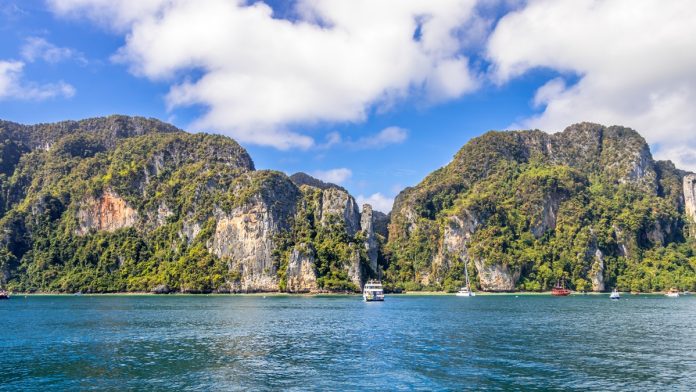It is unclear what the tourism industry would look like after COVID-19 : travellers will re-venture cautiously with the concept of social distancing in mind.
The tourist sector comprises a significant part of the Thai economy. It provides one in six job opportunities and accounts for approximately 13-14% of the country’s economy.
In January, Thailand received more than 3.5 million foreign tourists. Due to Thai’s reliance on the tourist sector, it is one of the most vulnerable economies to the COVID-19 impact.
China accounts for the most significant percentage (30%) of tourists visiting Thailand. It plays a vital role in underpinning the nation’s tourism sector.
Thailand felt the impact of Covid19 on 23 January as soon as China stopped travels and imposed a quarantine on Wuhan City.

Thailand has the largest proportion of Chinese visitors in SEA countries
The Thai government enforced the state of emergency on March 26 until April 30 and imposed a 10pm to 4am curfew on April 3. The emergency decree was then extended until the 31st of May.
Suddenly, Bangkok temples and markets became less crowded. The tourism sector will continue to deteriorate as more and more countries lock their borders and impose restrictions. The tourism-related gaming industry is one of the key sectors likely to be affected by the COVID-19 impact.
The streets are also abandoned. As such, the epidemic has been disastrous for small-scale businesses such as drivers of the Chiang Mai minibuses, traditional dancers, and flower sellers.
Employees also feel the impact of the coronavirus. Some hoteliers sent their employees on unpaid leave to cut down their operational costs. Even with the declining market and jobs, most of these people have mortgages and bank loans to service.
They only hope that the government will help them by delaying or cutting social security payments and tax payments and offering soft loans.
Hoteliers in Bangkok have not been spared. Before the outbreak, and particularly during the high season, hotels enjoyed 80 to 90% occupancy.
The future of the tourism sector over the next few months remains uncertain
So far, Thailand has 2,811 COVID-19 cases. According to the Ministry of Public Health, 655 are receiving medical treatment, 2,108 discharged from health facilities, while 48 died.
Although the nation has fewer cases than Japan, Korea, China, and Italy, tough times lie ahead for the tourism sector. The impact depends on the restrictive measures implemented and how long the pandemic will last.
We can only hope that the epidemic does not last for more than five months, as the impact would be disastrous for the tourism-dependent economy.
In March 2020, the Thai economy contracted at a higher rate than the previous month, said the Bank of Thailand in a press release.
The COVID-19 outbreak affected economic activities more severely in all aspects. In particular, the tourism sector severely contracted due to international travel restriction measures in many countries including Thailand.
It is unclear what the economy would look like after COVID-19. However, flight costs are likely to drop amid the epidemic. Travel costs are expected to drop to 50%, compelling tourists to cash in on the more affordable traveling opportunities.
Also, after the pandemic, more tourists will prefer more private hotel spaces. Private hotels will benefit after covid-19 compared to the large hotels with communal sharing spaces and any rooms, which encourage crowding.
Travelers will re-venture the industry cautiously with the concept of social distancing in mind. Assuming that Airbnb survives the COVID-19 crisis, it is in an excellent position to boom after the epidemic. In the same social distancing spirit, big hotels will be less popular compared to small villas, and tourists from Europe will avoid crowded spaces during the first year after recovery.
Source : www.thailand-business-news.com















